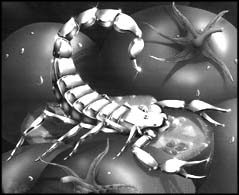 |
|
|
A petition has been launched in Norfolk in support of Norwich MP Ian Gibson’s call to Norfolk County Council to toughen up its policy on genetically modified (GM) ingredients in school meals.  The petition notes parliament has banned GM foods from their own catering because of the risks, and calls on Norfolk to follow the lead of other education authorities across the country by banning them completely from school meals. Petition organisers Norfolk Genetics Concern say Norfolk must provide children with food which is “free from this unnecessary and unwanted experiment with their health and their futures.” Genetic Network News shows how the John Innes Centre (JIC) is a key part of the corporate alliance that is imposing genetically manipulated food onto the world’s population. JIC provides key research for the big corporations and key pro-biotech advice to the Government, to whom they have access as independent scientists while, in reality, the main direction of their research is highly dependent on commercial biotech. Genetic Network News lifts the lid on how the JIC’s work and advice is aligned to industry at the expense of ordinary people around the world. The Government’s call for a voluntary 3-year ban on the commercial growing of genetically engineered crops should be seen as but the first step on the road to stopping the mad rush to introduce GE crops and food without long term safety testing. We now need: * to halt all the 300+ hazardous GE crop trials going on across the UK which English Nature has warned are not being properly regulated or monitored; * to implement Norwich MP Ian Gibson’s
call for a similar ban on all the genetically engineered food in the shops
until the long term risks to human health have been properly researched.
|
The UK’s leading institute for the genetic engineering (GE) of crops, Norwich’s John Innes Centre (JIC), has long presented itself as an independent institute largely publicly and charitably funded. The recent announcement of a £60 million plus investment in the JIC by two major chemical companies, DuPont and Zeneca, has blown the lid off this pretence. Zeneca’s massive £50m investment in John Innes includes plans for the construction of a special laboratory where 30 Zeneca scientists will be based, working in tandem with JIC staff, including 20 new JIC researchers financed by Zeneca. The goal of Zeneca and DuPont is to develop a genetically engineered wheat which, as the world’s most widely grown crop, could offer massive commercial returns. John Innes Centre (JIC) scientist, Prof Jonathan Jones, was at great pains at the foodfuture debate in Norwich in September to explain that despite its name the Sainsbury Laboratory at the JIC, where he worked, was not established by the supermarket giant, J Sainsbury plc, but rather by a Sainsbury family charitable trust. The point seemed clear - a John Innes scientist like himself should be listened to as an independent expert and not as one sullied by food industry ties. In fact, the Sainsbury Laboratory has long received a string of highly lucrative sponsorships from biotech companies of the likes of the giant Monsanto Corporation and the JIC biotechnicians’ career development and research direction is intimately tied into large-scale commercial interests. There is also a revolving door of fully
commercial and quasi-independent employment. Prof Flavell, former director
of the JIC, has just left to take up a post with an American biotech company.
Professor Jones spent five years with an American company before joining
the JIC. No wonder JIC scientists are so loath to rock the corporate boat!
|
